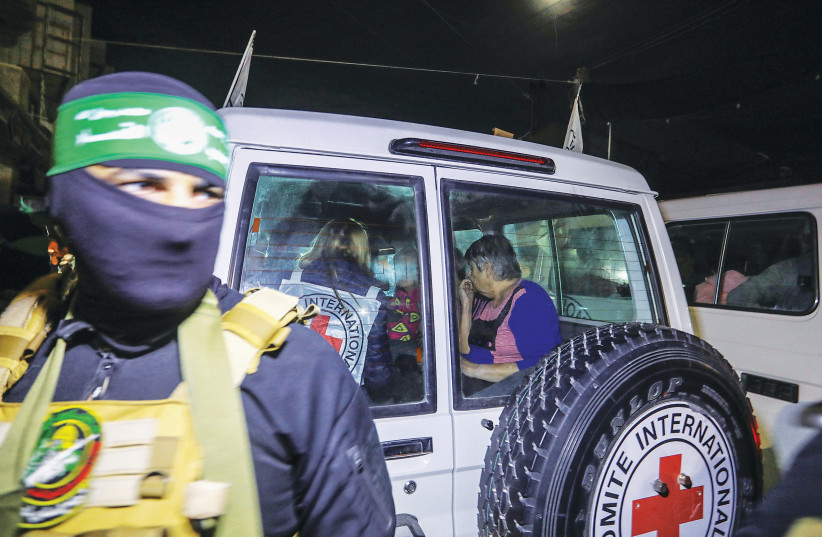The hostage deal between Israel and Hamas partially fell apart last week because Hamas wanted to prevent the remaining Israeli women it holds in Gaza from talking about their time in custody, US State Department Spokesman Matthew Miller told reporters in Washington on Monday.
“It seems one of the reasons they don’t want to turn women over that they have been holding hostage and the reason this pause fell apart is that they do not want these women to be able to talk about what happened to them during their time in custody,” Miller said during an emotional moment in the press conference.
Many women and children still hostage in Gaza<br><br><br>
Miller spoke four days after a week-long pause in the Gaza war ended on December 1. That deal allowed for Hamas to release 81 of the 240 captives it had seized during its October 7 infiltration into southern Israel in which it also killed over 1,200 people.
Some 17 to 20 women and children are among the remaining hostages in Gaza, with the US and Israel charging that Hamas violated that deal. Some eight of those captives also hold US citizenship.
Miller defended the resumption of Israel’s military campaign to oust Hamas from Gaza that began after the October 7 attack. He blamed Hamas for the war and said that more people should call for the terror group to lay down its arms.
“It is Hamas that is putting [Palestinian] civilians in harm's way. I am surprised that I do not hear more people say why doesn’t Hamas move out of schools? why doesn’t Hamas take additional steps to protect civilians? Because we think they should as we think Israel should.
“We would welcome Hamas laying down its arms at any point,” he added. “They could do it today if they cared about Palestinian civilian life.”
Miller also called on Israel to do more to protect civilians in Gaza, as Hamas asserted that close to 16,000 Palestinians have been killed in war-related violence.
The United States is watching IDF actions in Gaza “very closely,” Miller said as he explained that there were differences between Israel’s military campaign that resumed on December 1 and the one that ended on November 24.
“Too many Palestinians were killed in the opening weeks of the conflict, “ Miller said.
“We have seen a more targeted request for evacuations” by Israel so that the army is focused on clearing specific points rather than asking an entire city to evacuate, Miller said.
Civilians have been asked to relocate to “de-confliction zones rather than being asked to flee, Miller said.
During US Secretary of State Antony Blinken's visit to Israel last week, he clarified to officials “We do not want a military campaign in the south that looks like it was in the north.”
Blinken was briefed “on plans intended to avoid mass casualties.”
It was understood that there would be civilian casualties, “that is true in all war zones and is particularly true here” given that Hamas operates from within civilian areas, Miller said.
The US has also spoken with Israel about doing more to crack down on attacks by extremist settlers against innocent Palestinians in the West Bank, Miller said.
“We have seen them take some steps to respond to violence. We do not think those steps have been sufficient. They need to prosecute people who engage in violence against [innocent] Palestinians,” he said.
“We have made very clear to the Israeli government that we will be taking additional steps to hold people accountable for violent extremism,” he said, explaining that this could include visa restrictions.
Miller also addressed the issue of rising antisemitism, condemning it in the strongest terms.
“We oppose antisemitism wherever we see it,” Miller said. It’s tragic that after October 7, “one of the responses has been an increase in antisemitism that is extremely tragic and it’s incumbent on everyone in positions of authority to speak out.”

